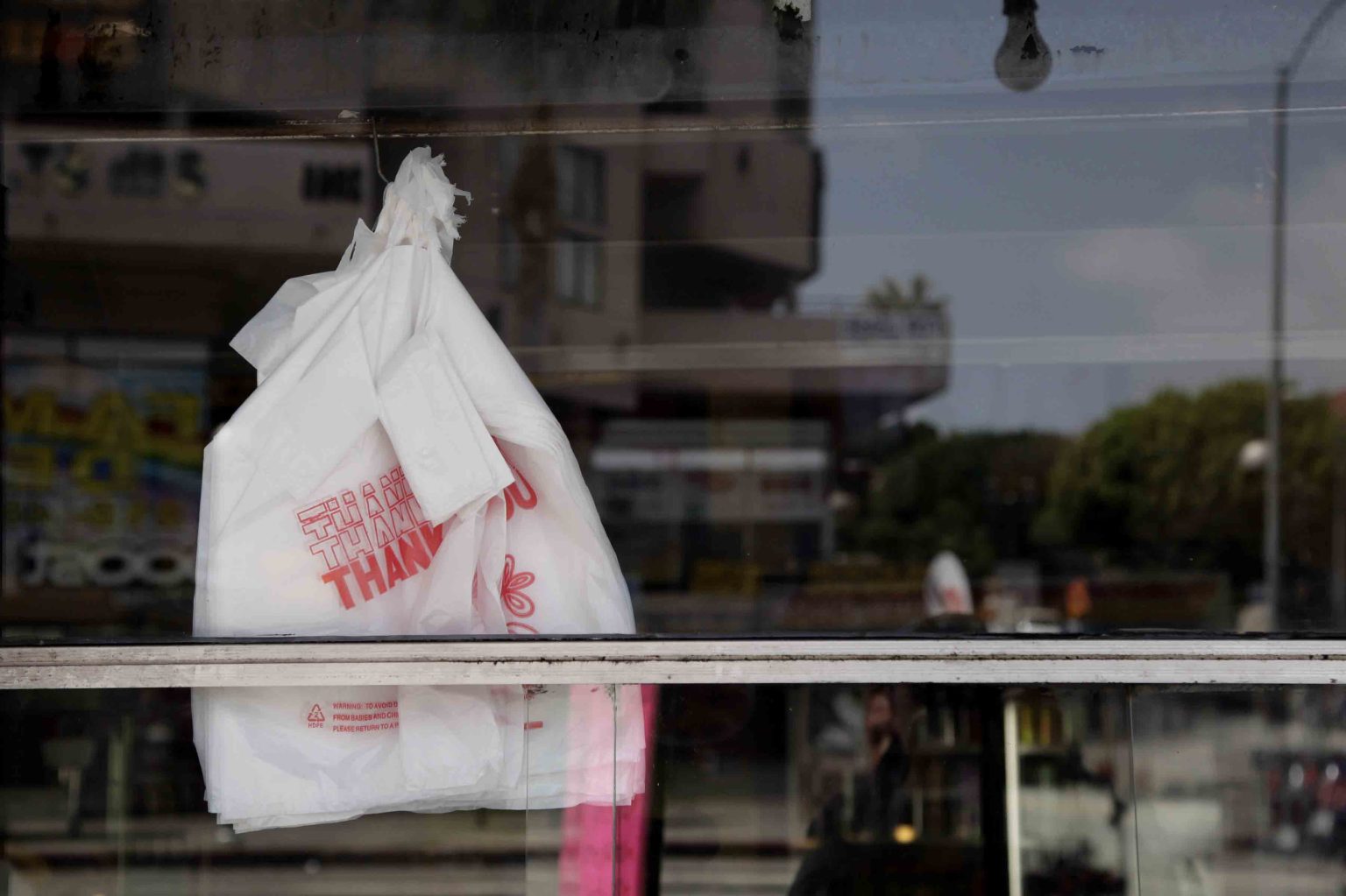Listen to the article
California’s Attorney General Rob Bonta filed a lawsuit Monday against several major plastic bag manufacturers, accusing them of misleading consumers about the recyclability of their products. The legal action targets several companies including Novolex, Hilex Poly, Revolution Sustainable Solutions, and Inteplast Group.
The lawsuit alleges these companies have engaged in deceptive marketing by labeling their bags as recyclable despite knowing that most recycling facilities in California cannot effectively process them. According to the complaint, the plastic bags and film packaging are rarely recycled in practice and typically end up in landfills or as environmental pollution.
“For years, plastic manufacturers have used the recycling symbol to trick California consumers into thinking their plastic bags will be recycled when they put them in the recycling bin,” Bonta said in a statement. “The reality is these bags are landfilled, incinerated, or worse—left to contaminate our environment.”
The case centers on how these companies have been using the universal recycling symbol, the chasing arrows logo, and terms like “recyclable” on their products. Bonta’s office claims these representations violate California’s environmental marketing laws, which prohibit misleading environmental claims.
California has some of the nation’s strictest regulations regarding environmental marketing. Under state law, products cannot be labeled as recyclable unless they can be collected, separated, and actually reprocessed into new products in most communities where they are sold.
The lawsuit points to technical limitations in recycling facilities throughout the state. Most materials recovery facilities (MRFs) are not equipped to process plastic bags and films, which can jam sorting machinery and contaminate other recyclable materials. When plastic bags enter recycling streams, they often require manual removal, increasing processing costs and reducing overall recycling efficiency.
Industry data cited in the lawsuit indicates that less than 10 percent of plastic bags and film packaging are actually recycled nationwide, with the rate in California estimated to be even lower despite the state’s progressive waste management policies.
Environmental groups have praised the legal action, seeing it as part of a broader effort to address plastic pollution. “These companies have known for years that their products aren’t being recycled, yet they continue to mislead consumers,” said Judith Enck, president of Beyond Plastics and former EPA regional administrator. “This lawsuit is an important step toward accountability.”
The plastic industry has consistently maintained that the issue lies not with their products but with inadequate recycling infrastructure. In response to the lawsuit, the American Chemistry Council, which represents many plastics producers, issued a statement emphasizing the need for investment in advanced recycling technologies rather than litigation.
“Expanding recycling infrastructure and capabilities would be more productive than legal action that could potentially limit consumer options,” the statement read.
This lawsuit comes amid growing regulatory scrutiny of plastics across the country. In 2022, California passed one of the most comprehensive plastics bills in the nation, requiring all packaging in the state to be recyclable or compostable by 2032, while reducing plastic packaging by 25 percent.
Several other states are considering similar legislation, and the Federal Trade Commission is currently reviewing its Green Guides, which provide standards for environmental marketing claims including recyclability.
If successful, the lawsuit could force companies to change their labeling practices and potentially pay substantial penalties. California law allows for civil penalties of up to $2,500 for each violation, which could amount to millions given the volume of plastic bags sold in the state.
The case also highlights the growing tension between convenience-oriented consumer packaging and environmental sustainability goals. While plastic bags remain popular for their low cost and utility, their environmental footprint has become increasingly controversial as images of plastic pollution in oceans and landscapes continue to raise public concern.
Legal experts suggest this case could set an important precedent for how environmental claims are regulated nationwide, as companies increasingly face pressure to substantiate green marketing claims with verifiable evidence.
Fact Checker
Verify the accuracy of this article using The Disinformation Commission analysis and real-time sources.



